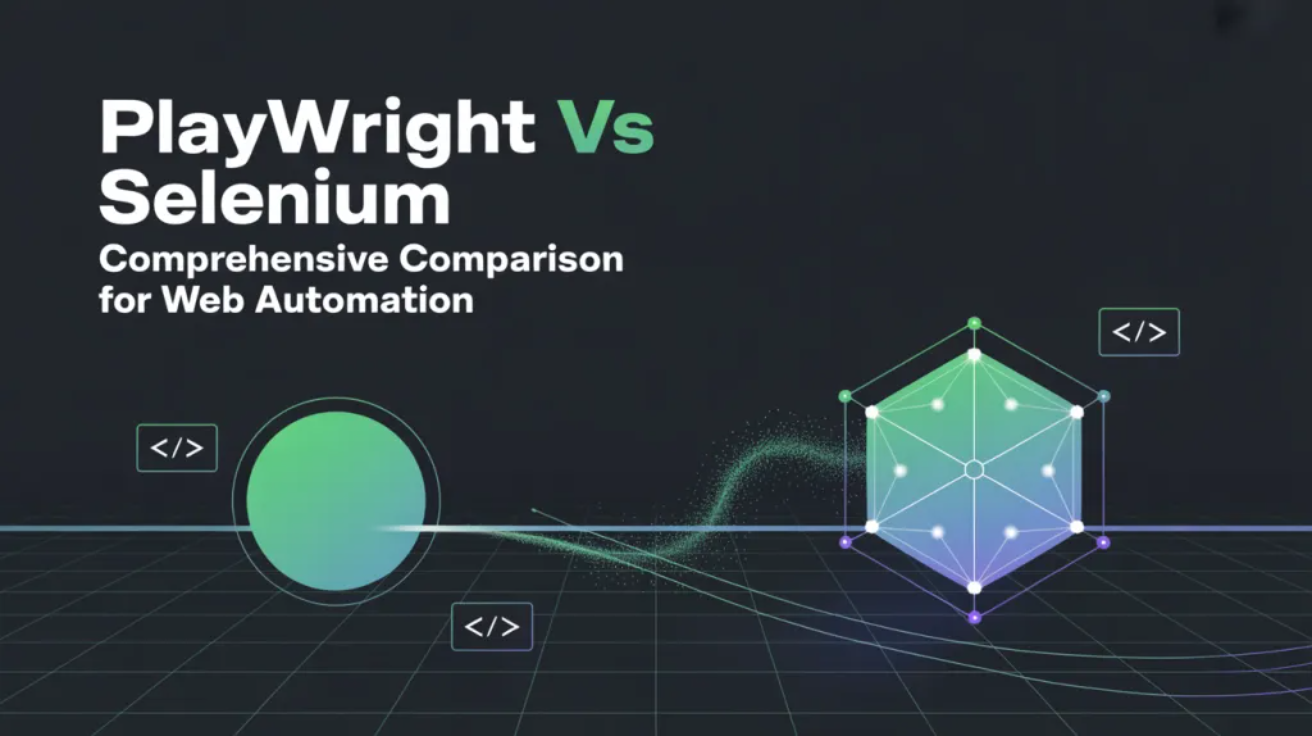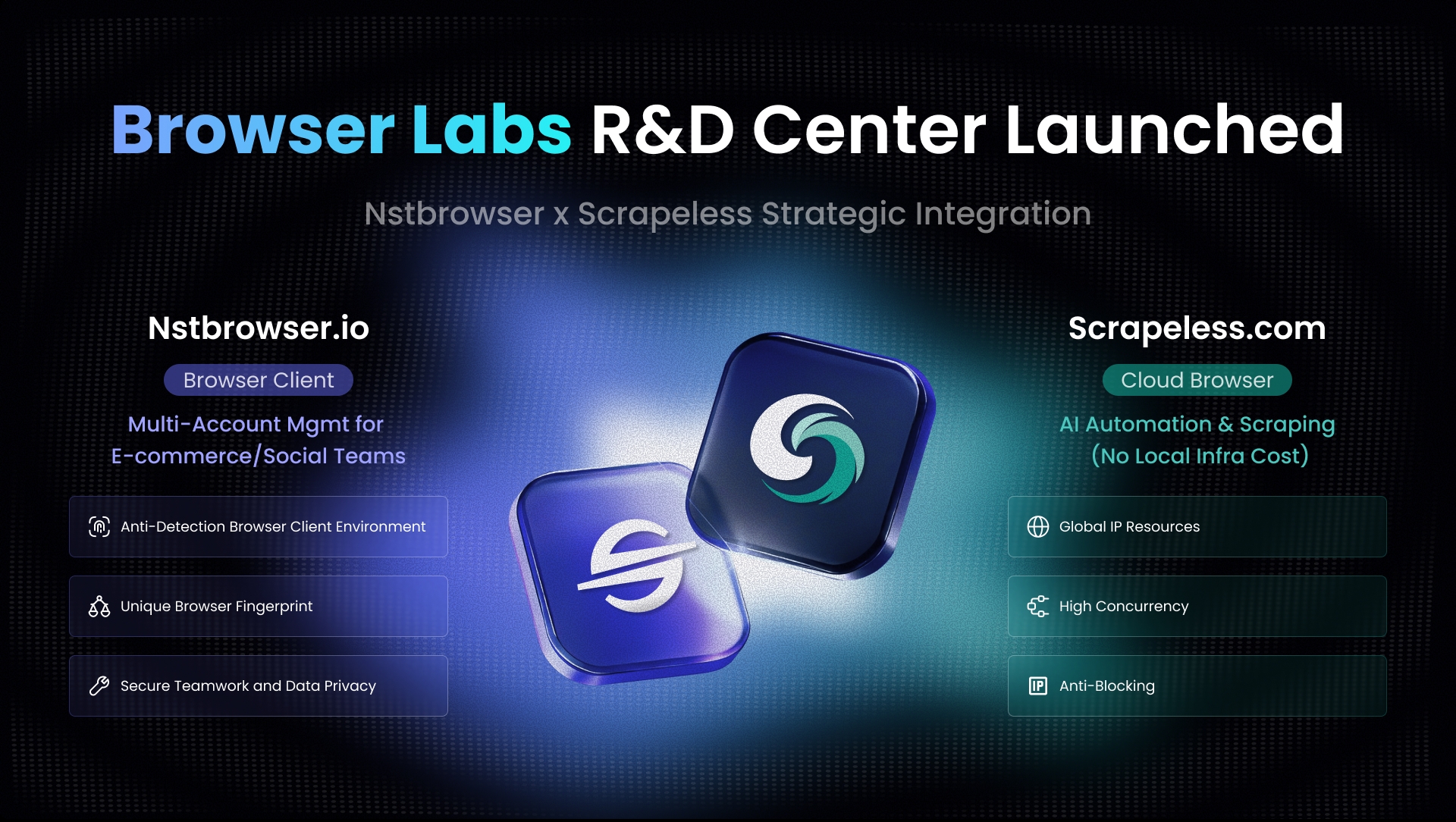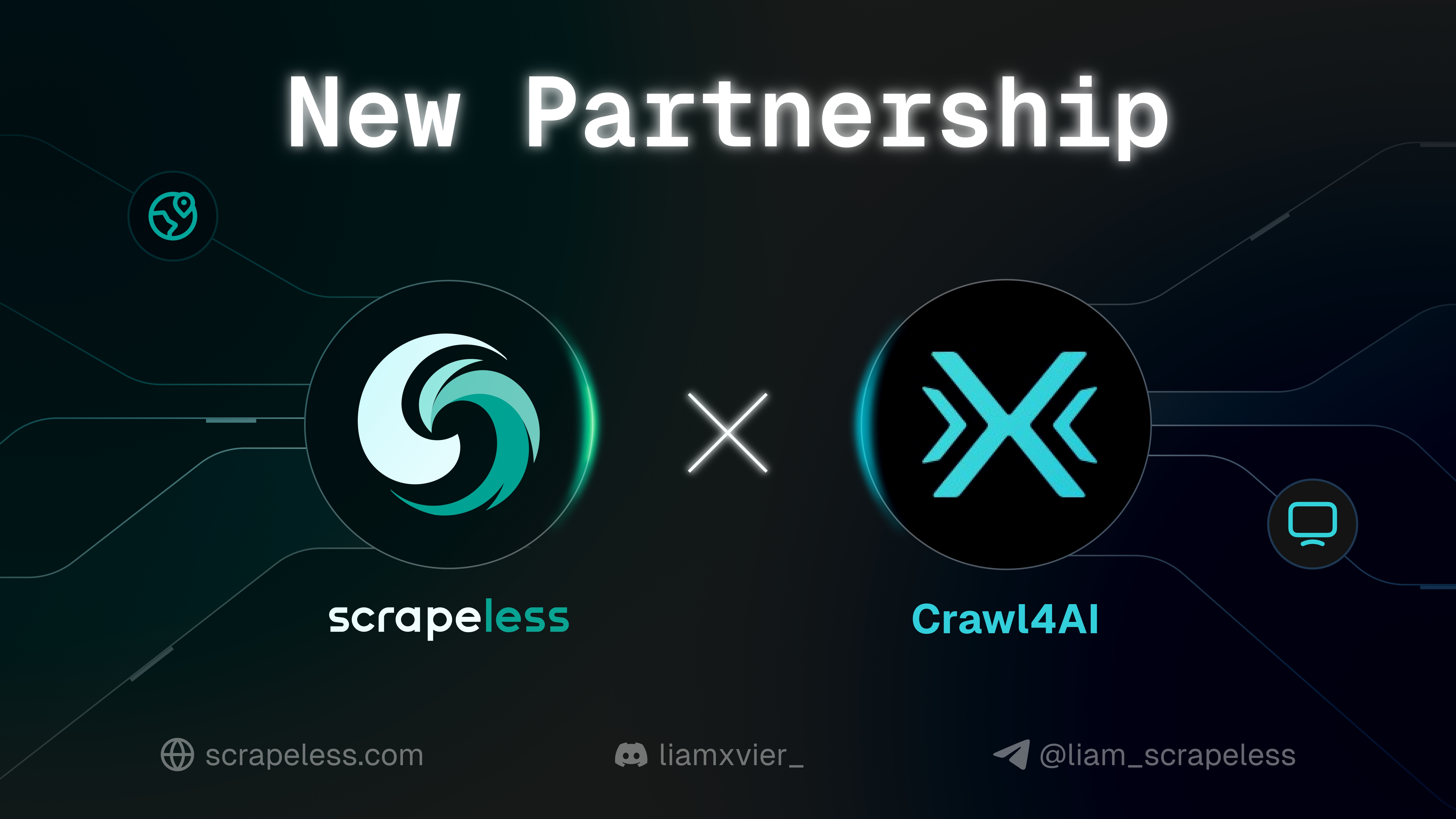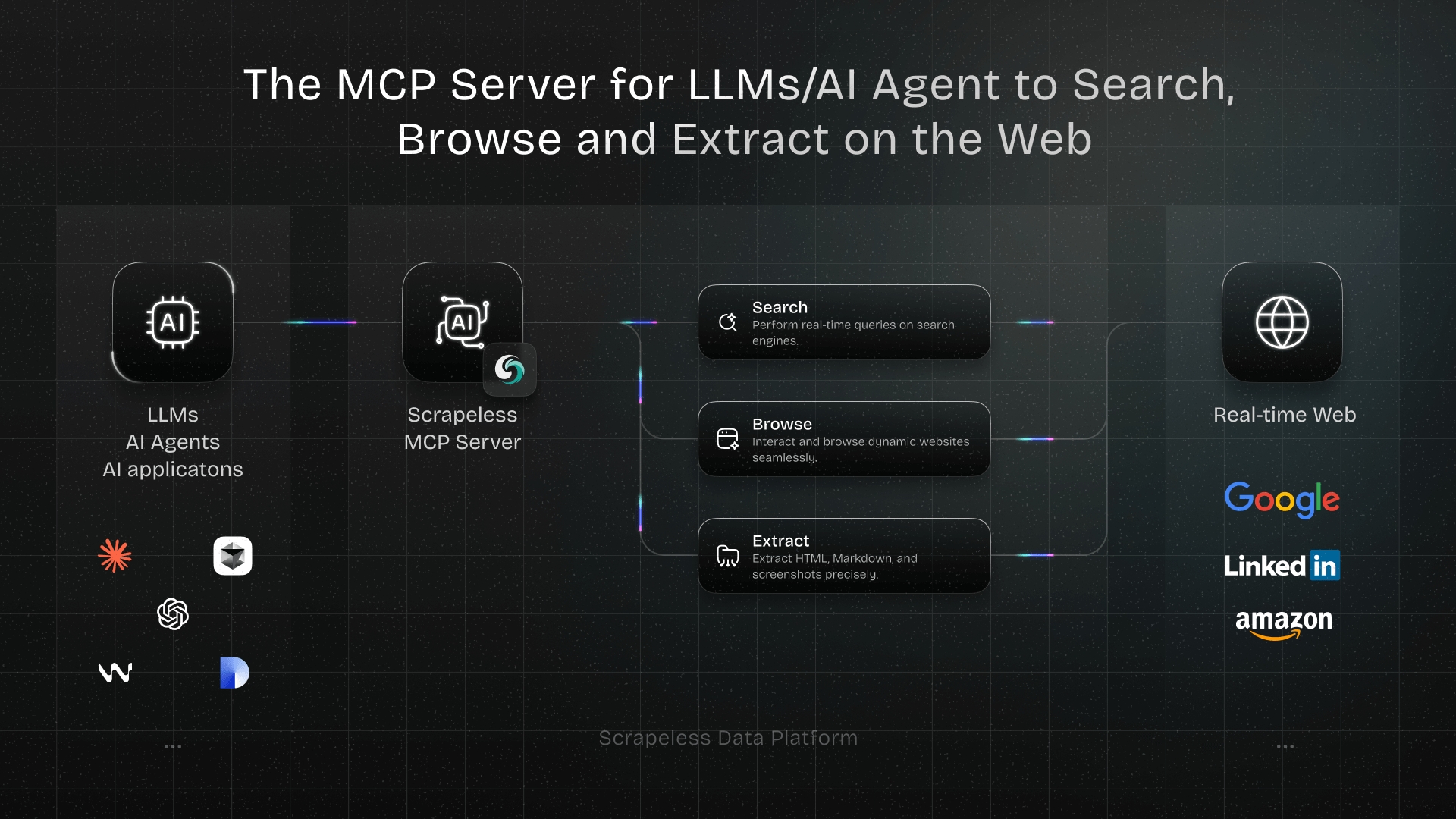Playwright vs Selenium: Comprehensive Comparison for Web Automation
Advanced Data Extraction Specialist
Introduction
In the rapidly evolving landscape of web automation, choosing the right tool is crucial for efficient and reliable testing and scraping. Two prominent contenders, Playwright and Selenium, often stand at the forefront of this discussion. While both aim to automate browser interactions, they differ significantly in their architecture, capabilities, and the problems they are designed to solve. This article delves into a comprehensive comparison of Playwright and Selenium, exploring their core features, performance benchmarks, community support, and ideal use cases. By the end, you'll have a clear understanding of which tool is better suited for your specific automation needs, helping you make an informed decision to streamline your development and testing workflows.
Key Takeaways
- Playwright excels in modern web applications with its event-driven architecture, offering faster execution and better handling of single-page applications (SPAs).
- Selenium boasts a mature ecosystem and broad language support, making it a robust choice for legacy systems and diverse development environments.
- Performance benchmarks often favor Playwright due to its direct browser communication, while Selenium's WebDriver protocol introduces an additional layer.
- Both tools have strong community support, but Playwright's community is rapidly growing, focusing on contemporary web technologies.
- Scrapeless integrates seamlessly with both Playwright and Selenium, enhancing web scraping capabilities by providing reliable proxy solutions and CAPTCHA solving, regardless of your chosen automation framework.
Understanding Playwright
Playwright is a relatively new, open-source automation library developed by Microsoft. It was designed to address the limitations of older automation tools, particularly in handling modern web applications. Playwright offers a single API to automate Chromium, Firefox, and WebKit browsers, enabling cross-browser and cross-platform testing. Its architecture allows for direct communication with the browser, bypassing the need for an intermediary WebDriver. This direct interaction contributes to its speed and reliability, especially in complex scenarios involving dynamic content and single-page applications.
Playwright supports multiple programming languages, including JavaScript/TypeScript, Python, Java, and C#. This broad language support makes it accessible to a wide range of developers and testers. Key features of Playwright include auto-waiting, which eliminates the need for explicit waits, and powerful selectors that can target elements based on their text content, accessibility roles, or even their position relative to other elements. It also provides advanced capabilities like network interception, emulation of mobile devices, and the ability to capture screenshots and videos of test runs, which are invaluable for debugging and reporting.
One of Playwright's significant advantages is its built-in support for parallel execution. This means tests can be run concurrently across multiple browsers or contexts, drastically reducing the overall execution time for large test suites. Furthermore, Playwright offers robust debugging tools, including a code generator that helps users create test scripts by recording their interactions with a web page. This feature, combined with its detailed tracing capabilities, makes Playwright a highly developer-friendly tool for building and maintaining automation scripts.
Understanding Selenium
Selenium is a venerable open-source framework for automating web browsers. It has been a cornerstone of web testing for over a decade, offering a suite of tools that includes Selenium WebDriver, Selenium IDE, and Selenium Grid. Selenium WebDriver is the core component, providing a programming interface to interact with web browsers. Unlike Playwright, Selenium communicates with browsers through a WebDriver protocol, which acts as a bridge between the test script and the browser. Each browser typically has its own WebDriver implementation (e.g., ChromeDriver for Chrome, GeckoDriver for Firefox).
Selenium supports a vast array of programming languages, including Java, Python, C#, Ruby, JavaScript, and Kotlin, making it highly versatile and adaptable to various development environments. Its widespread adoption has led to a rich ecosystem of third-party tools, libraries, and community resources. Selenium is particularly well-suited for cross-browser testing, as it allows testers to write scripts that can run on different browsers and operating systems with minimal modifications. This broad compatibility has made it a popular choice for organizations with diverse technology stacks.
While Selenium is powerful, it often requires more explicit handling of waits and synchronization compared to Playwright. Testers need to implement mechanisms to ensure that web elements are loaded and interactive before attempting to perform actions on them. For parallel execution, Selenium relies on Selenium Grid, which enables distributing tests across multiple machines and browsers. Although effective, setting up and managing a Selenium Grid can be more complex than Playwright's built-in parallelization. Despite these considerations, Selenium's maturity, extensive documentation, and large community continue to make it a reliable choice for many web automation projects.
Feature Comparison: Playwright vs. Selenium
When evaluating Playwright and Selenium, a direct comparison of their features highlights their strengths and weaknesses. This table summarizes key aspects to consider when choosing between the two.
| Feature | Playwright | Selenium |
|---|---|---|
| Architecture | Direct browser communication (DevTools Protocol) | WebDriver protocol (JSON Wire Protocol) |
| Browser Support | Chromium, Firefox, WebKit (all modern browsers) | Chrome, Firefox, Edge, Safari, IE (via WebDriver) |
| Language Support | JavaScript/TypeScript, Python, Java, C# | Java, Python, C#, Ruby, JavaScript, Kotlin |
| Auto-waiting | Built-in and intelligent | Requires explicit waits and custom logic |
| Parallelization | Built-in and efficient | Requires Selenium Grid setup |
| Debugging Tools | Built-in code generator, trace viewer | Relies on browser developer tools |
| Handling SPAs | Excellent, designed for modern web apps | Good, but may require more complex handling |
| Network Control | Robust API for interception and modification | Limited, often requires proxies |
| Community | Rapidly growing, Microsoft-backed | Large, mature, and well-established |
| Setup Complexity | Generally simpler | Can be more complex, especially with Grid |
This comparison reveals that Playwright, being a newer tool, has incorporated modern web automation needs into its design, offering features like built-in auto-waiting and parallelization that simplify test creation and execution. Selenium, on the other hand, benefits from its long history and extensive community, providing broad language and browser support, albeit with a more traditional architecture that sometimes requires more manual handling of synchronization and setup for advanced scenarios.
Performance Benchmarks
Performance is a critical factor in web automation, directly impacting the efficiency of testing cycles and the speed of data extraction. When comparing Playwright and Selenium, Playwright generally demonstrates superior performance, particularly in modern web environments. This advantage stems from its architectural design, which allows for direct communication with the browser using the DevTools Protocol. This direct interaction eliminates the overhead associated with the WebDriver protocol used by Selenium, resulting in faster command execution and more responsive automation.
For instance, benchmarks often show Playwright executing tasks, such as navigating to a page or interacting with elements, in significantly less time than Selenium. A test executed in ~290 ms with Playwright compared to ~536 ms with Selenium, indicating nearly half the execution time for the same task [1]. This speed difference becomes even more pronounced in scenarios involving complex single-page applications (SPAs) with dynamic content, where Playwright's auto-waiting capabilities and efficient event handling shine. Playwright's ability to run tests in parallel without additional configuration also contributes to its overall performance advantage, allowing for quicker feedback loops in continuous integration/continuous delivery (CI/CD) pipelines.
Selenium, while capable, can be slower due to its reliance on the WebDriver protocol and the need for explicit waits. Each interaction with the browser involves a round trip through the WebDriver, which can introduce latency. While optimizations and best practices can mitigate some of these performance bottlenecks in Selenium, Playwright's inherent design gives it an edge in raw execution speed. However, it's important to note that for simpler automation tasks or applications with less dynamic content, the performance difference might not be as significant, and Selenium's maturity and extensive community support might outweigh Playwright's speed advantage for some users.
References:
[1] https://www.browsercat.com/post/playwright-vs-selenium-deep-comparison
Community Support and Ecosystem
The strength of a tool often lies not just in its features but also in the vibrancy and responsiveness of its community and the richness of its ecosystem. Both Playwright and Selenium boast significant community support, though they differ in their maturity and growth trajectories.
Selenium, having been around for over a decade, has a vast and well-established community. This translates into abundant resources, including extensive documentation, numerous tutorials, active forums, and a large pool of experienced users. When encountering an issue with Selenium, it's highly probable that someone else has faced a similar problem and a solution or workaround is readily available online. The Selenium ecosystem is also incredibly rich, with a multitude of third-party libraries, plugins, and integrations that extend its functionality. Tools like TestNG, JUnit, and various reporting frameworks seamlessly integrate with Selenium, providing comprehensive solutions for test automation. This mature ecosystem makes Selenium a safe and reliable choice for organizations that prioritize stability and readily available support.
Playwright, while newer, has rapidly gained traction and is backed by Microsoft, which contributes to its robust development and continuous improvements. Its community is growing at an impressive pace, with active discussions on platforms like Discord and GitHub. The official Playwright documentation is comprehensive and well-maintained, and new tutorials and articles are constantly emerging as more developers adopt the tool. While its ecosystem is not as extensive as Selenium's yet, it is quickly expanding, with increasing numbers of integrations and community-contributed tools. Playwright's modern architecture and focus on contemporary web development practices attract a forward-thinking community that is keen on leveraging the latest advancements in browser automation. This rapid growth and active development make Playwright an exciting choice for those looking to stay at the cutting edge of web automation technology.
Use Cases and Best Practices
The choice between Playwright and Selenium often comes down to specific use cases and project requirements. Both tools are powerful, but their strengths align with different automation needs.
Playwright Use Cases:
- End-to-End Testing of Modern Web Applications: Playwright is ideal for testing complex single-page applications (SPAs) built with frameworks like React, Angular, or Vue.js. Its ability to handle dynamic content, shadow DOM, and web components seamlessly makes it a top choice for ensuring the quality of modern web experiences. For example, a team developing a real-time collaborative document editor would find Playwright's speed and direct browser interaction invaluable for testing concurrent user interactions and data synchronization. For more information on web scraping solutions, you can visit Scrapeless Solutions.
- Cross-Browser and Cross-Platform Testing: With its unified API for Chromium, Firefox, and WebKit, Playwright simplifies testing across different browsers and operating systems. This is particularly beneficial for applications that need to guarantee consistent behavior across various user environments. A company building a cross-platform e-commerce site, for instance, can use Playwright to verify functionality and UI consistency on Chrome (Windows), Firefox (macOS), and Safari (iOS emulation) with a single test suite. For more insights into SEO and web scraping, check out Scrapeless SEO Solutions.
- Web Scraping with Advanced Interactions: Playwright's robust capabilities for interacting with web elements, handling navigations, and intercepting network requests make it an excellent tool for sophisticated web scraping tasks. When scraping data from websites that require user logins, form submissions, or infinite scrolling, Playwright can simulate real user behavior more effectively than simpler scraping libraries. For instance, collecting product data from an e-commerce site that loads content dynamically as the user scrolls down would be a perfect fit for Playwright. For more advanced scraping needs, consider exploring Scrapeless's Scraping API or Universal Scraping API.
Selenium Use Cases:
- Legacy Application Testing: Selenium's long-standing presence and broad compatibility make it a solid choice for testing older web applications that might not fully adhere to modern web standards or rely on specific browser versions. Many enterprises with established test automation frameworks built on Selenium continue to leverage it for maintaining their existing test suites.
- Large-Scale Cross-Browser Testing with Grid: For organizations requiring extensive parallel testing across a large number of browser-OS combinations, Selenium Grid remains a powerful solution. While setting up and managing a Grid can be complex, its scalability allows for distributed test execution, significantly reducing the time needed to run massive test suites. A large QA department testing a banking application across dozens of browser versions and operating systems might still find Selenium Grid to be the most practical solution.
- Integration with Existing QA Ecosystems: Selenium's widespread adoption means it integrates well with a vast array of existing testing tools, CI/CD pipelines, and reporting frameworks. If a team already has a mature QA infrastructure built around Selenium, continuing to use it for new projects can minimize disruption and leverage existing expertise. For example, a team using Jenkins for CI/CD and TestNG for test management would find it straightforward to integrate new Selenium tests into their established workflow.
Best Practices for Both:
Regardless of the tool chosen, several best practices apply to both Playwright and Selenium to ensure efficient and maintainable automation scripts:
- Use Explicit Waits: While Playwright has auto-waiting, explicit waits are still crucial for handling complex asynchronous operations and ensuring element readiness. In Selenium, explicit waits are indispensable to prevent flaky tests caused by timing issues.
- Implement Page Object Model (POM): This design pattern helps organize test code by separating UI elements and interactions from test logic, making tests more readable, maintainable, and reusable.
- Parameterize Tests: Use data-driven testing to run the same test logic with different sets of input data, reducing code duplication and increasing test coverage.
- Handle Exceptions Gracefully: Implement robust error handling mechanisms to prevent tests from crashing and to provide clear feedback on failures.
- Keep Tests Atomic and Independent: Each test case should be independent of others, ensuring that failures in one test do not affect subsequent tests.
Integrating with Scrapeless for Enhanced Web Scraping
Whether you choose Playwright or Selenium for your web automation needs, integrating with a robust web scraping solution like Scrapeless can significantly enhance your capabilities, especially when dealing with complex or protected websites. Scrapeless provides a suite of tools designed to overcome common web scraping challenges, such as IP blocking, CAPTCHA solving, and managing proxies, allowing you to focus on extracting the data you need without getting bogged down by infrastructure issues.
How Scrapeless Enhances Playwright and Selenium:
- Reliable Proxy Management: Both Playwright and Selenium can be configured to use proxies, but managing a pool of rotating, high-quality proxies can be a daunting task. Scrapeless offers a seamless proxy solution, automatically handling IP rotation, geo-targeting, and proxy health checks. This ensures that your scraping operations remain undetected and unblocked, regardless of the target website's anti-bot measures. For instance, if you're using Playwright to scrape real estate listings from various regional websites, Scrapeless can provide local IPs to bypass geo-restrictions and avoid IP bans.
- Effortless CAPTCHA Solving: CAPTCHAs are a major hurdle for automated scraping. While Playwright and Selenium can interact with web elements, solving CAPTCHAs programmatically is often impossible or highly complex. Scrapeless integrates with advanced CAPTCHA solving services, allowing your automation scripts to bypass these challenges without manual intervention. Imagine using Selenium to automate form submissions for market research; Scrapeless can automatically solve any CAPTCHAs encountered, ensuring uninterrupted data collection.
- Browserless and Headless Automation: Scrapeless offers browserless scraping capabilities, which can complement your Playwright or Selenium setup. For tasks that don't require full browser rendering, using Scrapeless's API can be more efficient and cost-effective. However, for scenarios demanding full browser interaction, Playwright and Selenium remain indispensable, with Scrapeless providing the underlying infrastructure to ensure successful data extraction.
By combining the powerful automation capabilities of Playwright or Selenium with the robust infrastructure of Scrapeless, you can build highly resilient and efficient web scraping solutions. This synergy allows you to overcome the most challenging aspects of web data extraction, ensuring that your automation projects deliver accurate and timely results. To learn more about how Scrapeless can supercharge your web scraping, visit Scrapeless.
Conclusion and Call to Action
The choice between Playwright and Selenium is not a matter of one being inherently superior to the other, but rather which tool best aligns with your project's specific requirements, team's expertise, and the nature of the web applications you intend to automate. Playwright, with its modern architecture, direct browser communication, and built-in features like auto-waiting and parallelization, is an excellent choice for automating contemporary web applications, especially SPAs, and for those seeking faster execution and a simpler setup. Its rapid growth and active development signify its position as a leading tool for future-proof web automation.
Selenium, on the other hand, remains a robust and reliable option, particularly for legacy systems, projects requiring extensive cross-browser compatibility across a wide range of older browsers, and teams deeply invested in its mature ecosystem. Its vast community support and extensive third-party integrations provide a stable and well-documented environment for complex automation challenges. Ultimately, both tools are powerful and capable of handling diverse web automation tasks.
Regardless of your choice, remember that the effectiveness of your web automation efforts can be significantly amplified by leveraging specialized services. For enhanced web scraping capabilities, including reliable proxy management and effortless CAPTCHA solving, consider integrating with Scrapeless. It complements both Playwright and Selenium, allowing you to overcome common hurdles in data extraction and focus on what truly matters: gathering valuable insights.
Ready to streamline your web scraping and automation?
Try Scrapeless for Free Today!
FAQ
Q1: Is Playwright a replacement for Selenium?
A1: Not necessarily a direct replacement, but rather a modern alternative that addresses some of Selenium's limitations, especially for modern web applications. Playwright offers a more streamlined API, built-in auto-waiting, and better handling of single-page applications, often resulting in faster and more reliable tests. However, Selenium still holds its ground due to its maturity, vast community, and extensive language support, making it suitable for a wide range of projects, particularly those involving legacy systems.
Q2: Which tool is faster, Playwright or Selenium?
A2: Playwright is generally considered faster than Selenium. This is primarily due to its architectural design, which allows for direct communication with the browser using the DevTools Protocol, bypassing the overhead of the WebDriver protocol used by Selenium. Benchmarks often show Playwright executing tasks in significantly less time, especially for complex and dynamic web applications.
Q3: Can I use Playwright and Selenium together?
A3: While it's technically possible to use both in a single project, it's generally not recommended due to increased complexity and potential conflicts. It's usually more efficient to choose one tool and leverage its full capabilities. However, for specific niche scenarios or migration strategies, a hybrid approach might be considered, but it requires careful planning and implementation.
Q4: What are the main advantages of Playwright over Selenium?
A4: Playwright's main advantages include its modern architecture for direct browser communication, built-in auto-waiting, native support for parallel test execution, comprehensive API for network interception and emulation, and excellent handling of modern web features like Shadow DOM and Web Components. It also offers robust debugging tools and a simpler setup process compared to Selenium Grid.
Q5: When should I choose Selenium over Playwright?
A5: You might choose Selenium over Playwright if you are working with legacy web applications, require extensive cross-browser testing across a very wide range of older browser versions, or if your team already has significant expertise and an established testing infrastructure built around Selenium. Its large and mature community also provides a wealth of resources and integrations that might be crucial for certain projects.
At Scrapeless, we only access publicly available data while strictly complying with applicable laws, regulations, and website privacy policies. The content in this blog is for demonstration purposes only and does not involve any illegal or infringing activities. We make no guarantees and disclaim all liability for the use of information from this blog or third-party links. Before engaging in any scraping activities, consult your legal advisor and review the target website's terms of service or obtain the necessary permissions.



